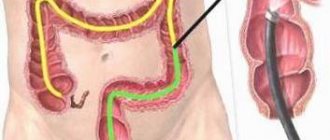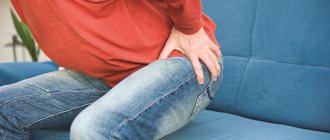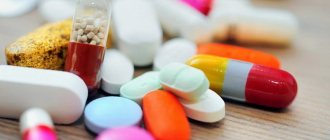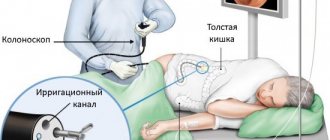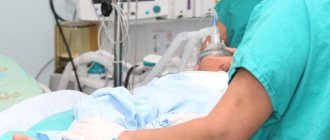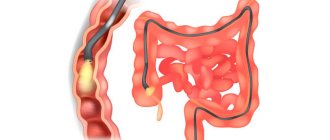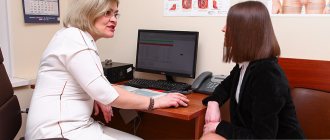Siegbert Rossol, gastroenterologist, specialist in internal medicine
Since 2006, he has held the post of chief physician at the Nordwest Medical Clinic.
Read more about the specialist →
Gastric cancer remains one of the most common cancers. The main treatment method for stomach tumors in Germany is surgery - partial or complete removal of the organ, which is associated with the occurrence of certain problems in the patient’s diet.
source: ©pexels.com
Diet to restore nutrition after resection
After surgery, it is recommended to follow the following procedure for restoring food intake:
- 1-2 days - drink sips, yogurt;
- 2-3 days - white bread, marmalade, soft cheese, mashed potatoes;
- Day 4 - if well tolerated, white bread, buns, soft fats, potatoes, easily digestible vegetables, lean low-fiber meat or fish, eggs, fermented milk drinks;
- During the first 10-12 weeks - a gentle menu with meals 6-10 times a day in small portions;
- After 3-6 months, you can switch to 3-5 meals a day.
As a rule, the operated stomach adapts to new conditions within 2-6 months. Most patients can eat all types of food after a year, just like before surgery!
When to see a doctor?
If you have diarrhea, it is important to seek medical help immediately if you have any of the following symptoms:
- signs of dehydration;
- severe pain in the abdomen or rectum;
- stools that are black or have blood in them;
- temperature;
- frequent vomiting;
- a weakened immune system or other underlying health condition.
The duration of your symptoms also matters. Contact your doctor if diarrhea continues for more than two days. Be sure to contact your child's pediatrician if your child has diarrhea for more than 24 hours.
Energy requirement
Energy requirement is approximately 1/3 higher than in healthy people, about 30-40 kcal/kg/day:
- Weight 50 kg = 1500-2000 kcal;
- Weight 60 kg = 1800-2400 kcal;
- Weight 70 kg = 2100-2800 kcal;
- Weight 80 kg = 2400-3200 kcal;
- Weight 90 kg = 2700-3600 kcal.
A few simple rules:
- Remember that you have no feeling of hunger and satiety occurs earlier;
- Chew your food well, eat slowly, not too hot and not too cold;
- Do not drink while eating;
- Monitor your weight daily;
- Food should be easily digestible and complete;
- High-quality foods rich in vitamins and minerals are important;
- Nutrient ratio: 55% of the energy value should be carbohydrates, 30% fat and 15% protein.
Well tolerated:
- Fats Boiled meat, grilled meat, fish, fresh butter, margarines, sunflower oil, yogurt, low-fat cheese, 1 tablespoon of sour cream before the main meal, soft-boiled eggs.
- Salads Carrot, green, cucumbers, tomatoes with a small amount of marinade, sour cream or sunflower oil.
- Vegetables Broccoli, cauliflower, kohlrabi, wax beans, spinach, carrots.
- Some varieties of sausages
Avoid:
- Concentrated sweet and flour dishes;
- Meat broths;
- Sweet drinks;
- Milk and dairy products;
- Fried;
- Vegetables and fruits rich in fiber (for example, oranges);
- Smoked;
- Peppered;
- Alcohol.
What's normal and what are the risks?
An acute case of diarrhea usually resolves on its own after a few days of home care. Chronic diarrhea may last several weeks.
But what is a normal amount of diarrhea? Although diarrhea is defined as three or more watery bowel movements per day, it is important to see a doctor if you experience six or more per day.
Risk
There are some potentially serious health risks associated with diarrhea. These conditions can quickly become serious or even life-threatening.
Dehydration
Due to the loss of fluid and electrolytes, diarrhea can quickly lead to dehydration. Symptoms may differ between adults and children.
Some symptoms adults should watch out for include:
- increased thirst;
- dry mouth;
- very little or no urine;
- dark colored urine;
- weakness or fatigue;
- feeling dizzy.
Dehydration in children may also have the following symptoms:
- cries, but without tears;
- without a wet diaper for 3 hours or more;
- drowsiness;
- increased irritability.
Poor absorption of nutrients
If you have diarrhea, you will not be able to effectively absorb nutrients from the food you eat. This can lead to nutritional deficiencies. Some signs that may indicate that your digestive tract is having a hard time absorbing nutrients include:
- permanent gases;
- bloating;
- stool that smells bad or is greasy;
- change in appetite;
- weight loss
Possible problems after gastrectomy
Gastrectomy
Gastrectomy is an operation to completely remove the stomach.
As a rule, this operation is indicated for the development of malignant tumors. Read more about the procedure →
Nutrition after gastric resection for oncology requires special attention, since, in addition to sudden weight loss, patients may encounter a number of side effects of the operation. Below are recommendations that will help improve the process of food intake and processing by the body.
- Weight loss and malnutrition Premature satiety and poor nutrition often lead to weight loss, so it is very important to constantly monitor your weight.
- Heartburn The condition after surgery can lead to the reflux of the contents of the small intestine into the esophagus. To prevent such manifestations, we recommend the following measures: Frequent meals in small portions;
- Chew your food thoroughly (up to 20 chews before swallowing);
- Try eating ground foods;
- Never lie down after eating, remain upright or moving as long as possible;
- Drink not during meals, but between meals.
- Don't eat too much fatty food!
- Eat more often, eat small, easily digestible dishes: bread and butter, natural yogurt, vegetable soup, boiled potatoes;
- Avoid concentrated broths, rhubarb, spinach, tea, chocolate, alcohol;
- Eat less milk sugar - this means less fresh milk, powdered milk and products such as condensed milk, processed cheese, etc.;
source: ©pixabay.com
It can occur immediately after surgery or later, as a result of a lack of vitamins or iron, which is confirmed in their reviews after longitudinal gastrectomy by patients at the Nordwest clinic who were diagnosed in Germany and faced this problem. Support your blood with a varied diet! Recommended:
- Eat foods rich in vitamins and iron (iron contains bread, meat, vegetables such as spinach, peas, beans);
- Eat foods high in calcium, such as milk, fermented milk products (mostly hard cheeses), nuts, vegetables - cabbage, broccoli;
Every aspect of nutritional recommendations is discussed with your doctor both in preparation for surgery and after surgery. If you have any questions regarding your diet after complete or partial removal of your stomach, you can contact your doctor at the Nordwest Clinic at any time via video consultation.
Diarrhea caused by local anesthesia
Diarrhea after local anesthesia is quite rare; before surgery, the anesthesiologist carefully checks the body’s reaction to the active components of the painkiller. To avoid side effects, the optimal dosage is calculated, which does not cause harm to the body. In case of an individual negative reaction to the components, the anesthesiologist selects a drug with a different composition.
Even careful selection of pain medication does not guarantee the absence of side effects. Along with diarrhea, the patient may complain of sleep disturbances, headaches, and prolonged dizziness. Malfunction of the digestive organs is another problem that may appear immediately after surgery under local anesthesia.
Doctors warn that there is no particular reason to panic. If the condition stabilizes and the side effects do not increase, the unpleasant discomfort will go away on its own, without medical intervention.
Treatment
If you are seeking medical care for a serious bout of diarrhea, your doctor will first take your medical history and perform a physical examination.
The doctor will ask you about your symptoms and how long you have had them. They typically also ask about any recent surgeries and underlying health conditions.
In addition to a physical exam, your doctor may order certain tests to try to determine the cause of your diarrhea. This may include a stool sample, blood tests, a CT scan, or possibly an endoscopy.
Below are some ways to treat your condition:
- Rehydration. Diarrhea can cause loss of fluids and electrolytes, so part of the treatment plan will likely focus on replacing them. If you cannot keep down fluids, you may receive them intravenously.
- Antibiotics. If bacteria is causing an infection that is causing you diarrhea, you may be able to get antibiotics to treat the infection.
- Corrective medications. Some medications may cause diarrhea. If you take one of these, your doctor may adjust your dosage or switch you to another medicine.
- Treatment of the underlying condition. If your symptoms are the cause, special medications or possibly surgery may be recommended.
Treatment of chronic diarrhea
If you have chronic diarrhea after surgery, your doctor may start by prescribing medications and recommending dietary changes to control your symptoms until your body adjusts.
Once your body reaches a new balance, you can stop taking the medications and get rid of the diarrhea.
In other cases, you may need ongoing or even lifelong use of medications to control or minimize episodes of diarrhea.
If you find an error, please select a piece of text and press Ctrl+Enter.
